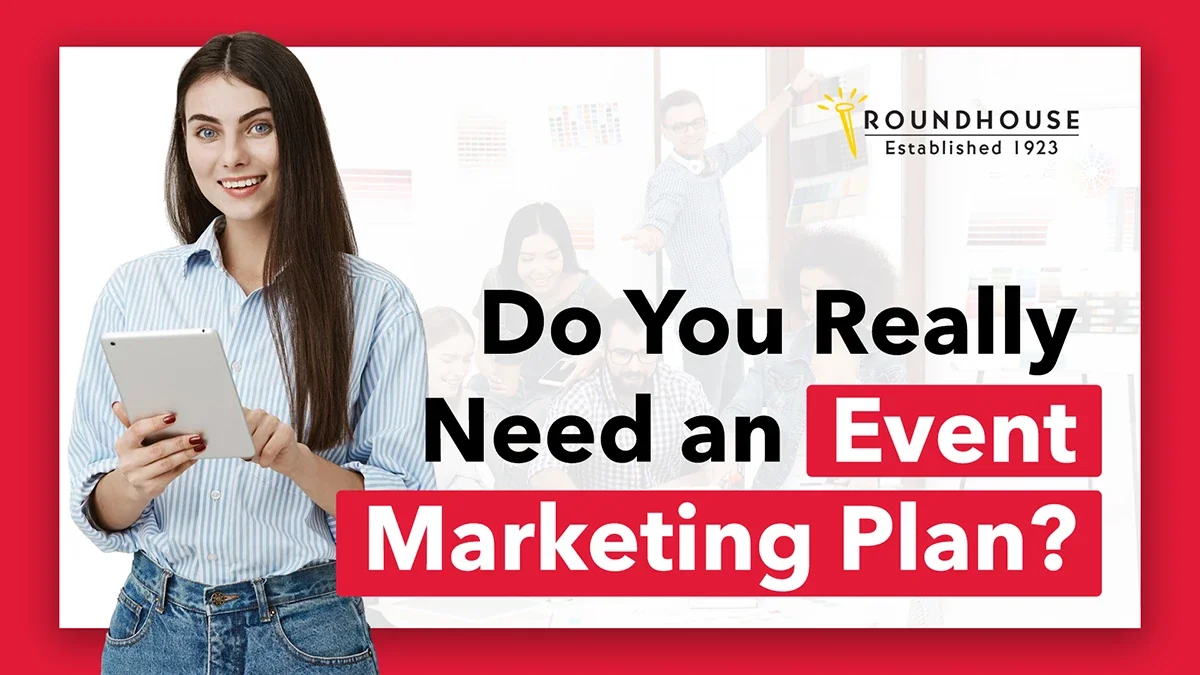Do You Really Need an Event Marketing Plan?
Yes, having an event marketing plan is essential. It’s a requirement if you want people to actually show up, engage, and take action. The catch? It’s not always about having a plan; it’s more about what kind of plan you build. A generic event checklist can result in a typical event, but a strategic event marketing plan leads to one that drives real results.
This blog cuts past the obvious and shows you how to make your plan smarter, more engaging, and more memorable so you’re not just filling seats but creating impact.
What Makes an Event Marketing Plan Strategic?
Most teams recognize the need for an event marketing plan, but the mistake is treating it as a basic to-do list. They just book a venue, send invites, print banners, and post on LinkedIn. While these tasks are necessary, they’re not strategy—they’re logistics.
Building a strategic event marketing plan connects every detail back to your business goals. You’re not just “hosting an event,” you’re designing a customer experience that:
- Reinforces your brand identity
- Generates qualified leads
- Strengthens relationships with customers and partners
- Extends ROI even after the event is over
The difference lies in being intentional with your plan, rather than just being organized. For instance, a company that relies on a simple event checklist might still see decent attendance, but attendees leave without clear next steps or lasting impact. On the other hand, a company that builds a strategic plan engages before, during, and after—driving higher engagement, more leads, and real ROI.

Get Into the Basics
If you’re ready to move beyond checklists, these are the core elements that can kickstart your strategic event marketing plan. Each one ensures your event isn’t just well-run, but impactful, measurable, and aligned with business goals.
-
Clear Goals
Every successful event marketing plan starts with clarity. Without a defined “why” , even the best plans fall flat. However, it’s also not enough to say you want more leads or brand awareness. Your goals need to be specific, measurable, and tied to outcomes that matter.
When defining your goals, don’t just focus on the numbers. Consider the experience you want people to take away with them. When goals are clear and tied to the kind of experience you want to create, they guide every decision from event format to promotional tactics to follow-up strategy.
-
Defined Audience
Not every event is meant for every person. Marketing your event to everyone is the fastest way to guarantee you’ll connect with no one. Failing to define an audience means risking empty seats, low engagement, and wasted budget on ads that don’t resonate. You need to determine who your event is really for and craft your plan around them.
You can start by building audience personas that answer:
- Demographics: age, role, industry, location
- Pain points: what challenges can your event help solve?
- Motivations: why would they attend—education, networking, deals, inspiration?
Take advantage of the patterns your CRM reveals and survey answers on why people attended your event last time. Combine both to sharpen your targeting and messaging. You can also build exclusion lists of people that you don’t wish to target at your event.
-
Multi-Channel Promotion
Having an in-person event doesn’t mean your promotion is limited to in-person methods too. You need a coordinated mix to meet your audience where they are. Use email campaigns, social media, direct mail, and event kits to promote your event.
Tip: Create an attendee referral loop to reward people for bringing a colleague or friend to double your reach.
-
Engagement Triggers
Don’t let the hype of your event die down after the first invitation email. Plan interactive triggers at every stage , from pre-event polls and live Q&A sessions to social contests, to keep attendees engaged and invested. Engagement triggers also help you make attendees feel like they’re part of the event, which translates to a stronger brand recall and post-event conversions.
-
Post-Event Takeaway
The actual event is important, but what you do after that plays an even bigger role. Don’t stop at a simple “thank you.” Keep the momentum going by sending them a recap email with polls or quick questions. You can also create a digital gallery or use an official hashtag that allows attendees to upload images or posts about the event. These small but intentional actions turn a one-day event into an ongoing conversation.

Let Your Vision Meet Execution
So, do you really need an event marketing plan? Yes, but not just any plan. A simple checklist can get things moving, but it won’t solve the frustrations that come with hosting an event. If you’re dealing with half-empty seats, a mismanaged budget, and ads that don’t convert, you might need to consider strategic planning.
Your plan has to be aligned with your business goals, attract the right audience, deliver a memorable experience, and create momentum long after the event is over. When your plan is intentional, not just organized, you stop feeling like you’re chasing tasks and start seeing measurable results.
The good news? You don’t have to do it alone. At Roundhouse , we understand the pressure behind making events work because we’ve helped brands just like yours turn events into real growth engines. From creative design and influencer kits to direct mail, warehousing, and fulfillment, we connect strategy with seamless execution so your events deliver the impact you want.
Ready to turn your next event into more than just logistics? Talk to us today !
Frequently Asked Questions (FAQs)
-
How early should I start planning an event?
The timeline of planning is based on the event’s size and complexity. Ideally, simple events need only 1 to 2 months, while larger and more complex events require 6 to 12 months of preparation. -
Do small businesses really need an event marketing plan?
Yes, even a small workshop or a simple webinar can benefit from a structured plan. A clear strategy ensures you reach the right audience and use your budget the right way. -
Do online events require the same level of planning?
Absolutely, virtual and hybrid events even require more planning and structure to drive registrations, keep attendees engaged online, and capture leads effectively.
